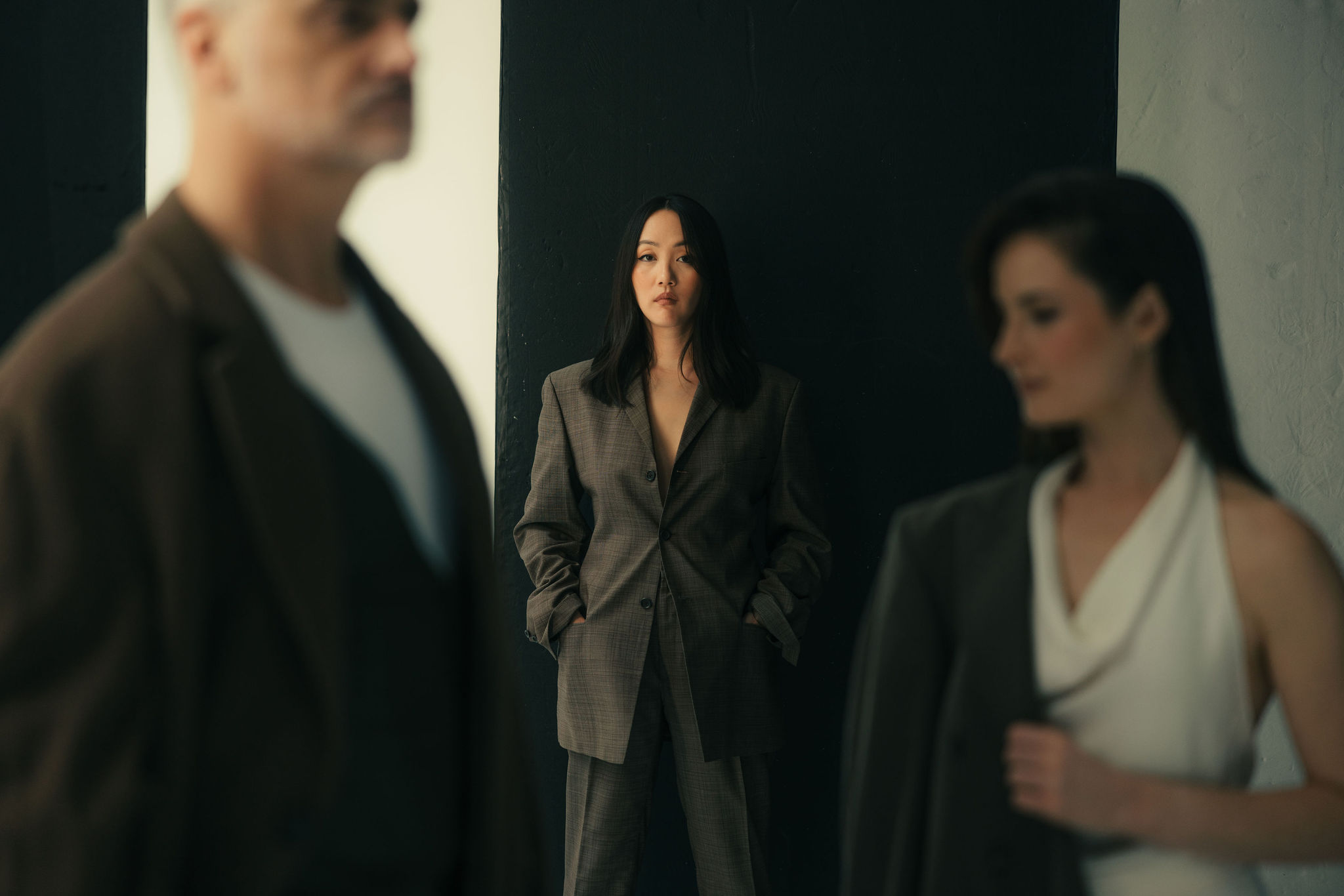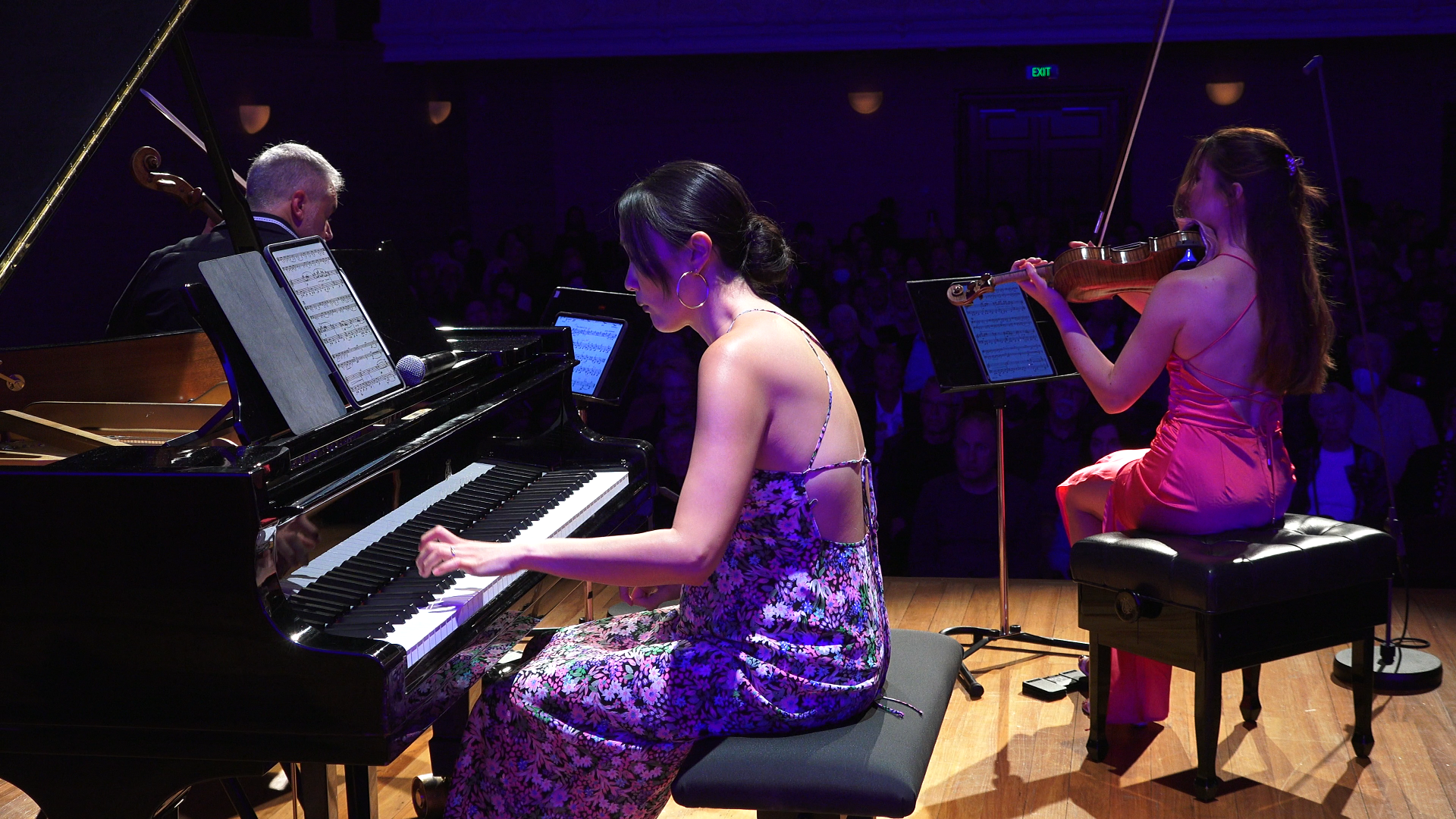NZTrio’s first Auckland concert of the year named Tectonic Shift at Q Theatre’s Loft last night was a rich collision of old and new, and a juxtaposition of cultures. Wonderful extremes of classical lyricism with raw power proved once again that NZTrio truly delivers contemporary artistic virtuosity.
– Clare Martin, Radio13
NZTrio’s first Auckland concert of the year named Tectonic Shift at Q Theatre’s Loft last night was a rich collision of old and new, and a juxtaposition of cultures. This was the first official concert with the new player line-up of violinist Amalia Hall, pianist Somi Kim with founding member Ashley Brown, a line-up trialled last year in their 2018 programme, Twine. It is an exciting new era for the Trio as the worlds of Hall and Kim add to the group’s already formidable heritage of Brown’s deep musicianship.
The programming was introduced as a contrast of old and new, the Cold War clash of the US with the USSR. It was certainly interesting to open by sandwiching a brand spanking new Aotearoa commission amidst two “Miniatures” composed in 1908 by British Frank Bridge (a composer that gets almost a star turn in the Trio’s programming in 2019). Bridge’s Allegretto from Three Miniatures for Piano Trio, Set 1 was a dainty beginning to the evening and his Gavotte a delicious morsel.
I can’t help feeling the Trio missed an opportunity tonight to fully honour Matariki and give more time to the commission Te waka o te rangi by Dame Gillian Karawe Whitehead. This was a beautiful clearing in the forest – a recording of the kōauau ponga iho (gourd nose flute) leading us into the call and response between the players. It’s soft sonorities and plaintive lines placed into the heavens the fifty-one souls from Christchurch’s massacre. Despite feeling a little too short, the audience received its loveliness with great warmth and Dame Whitehead herself was there to share in the premier.
Exciting to bear witness to a reprising of the first ever NZTrio commission from 2003 – Michael Norris’ dirty pixels. An immensely enjoyable piece with the rhythmic energy of Bartok punctuated with dramatic dissonant chords. But the main chunk of this first half was given to the contemporary British composer James McMillan. This was a great choice in a programme seeking juxtaposition with references to both traditional Scottish bagpipes as well as contemporary drama. Kim on piano was utterly mesmerising with liquid piano dashes of sheer jazz brilliance and deep implosions into the keys. Wonderful extremes of classical lyricism with raw power proved once again that NZTrio truly delivers contemporary artistic virtuosity.
It was very welcome to hear a work by the prolific American composer Jennifer Higdon with Pale Yellow and Fiery Red. Delivering exactly what it said on the tin, it was a warm and attractive work, as the composer confesses “unabashedly accessible”. It gave a chance to hear beautiful sweet tones from Hall’s violin although at times the bowing seemed even too light. Again some brilliant dazzles from piano and a wonderfully stroppy and indeed fiery second movement.
The secret weapon of the evening, however, was Anton Arensky’s classic and sweeping Piano Trio No. 1 in D minor opus 32. Here NZTrio seemed to finally stretch out into their full expressive power. The piece was written in memory of Russia’s ‘Tsar of cellists’ and Trio cellist Brown led the way with gorgeous lush tone. This unleashed a richer sound from Hall than had been heard this evening, and exquisite phrases from strings and Brahms-like breadth on piano that seemed to come from eternal heartbreak. The Russians know the wrench between power and loss, old and new, joy and pain. This masterly ending to the programme brought the audience to a powerful and brilliant finale.

